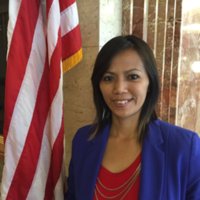
I arrived in France when I was 14 from Togo, with a woman called Simone. My parents had entrusted me to this woman, who had promised them that I would come to France to work for her at her home, to help her and to have a better future and continue my studies. But that’s not what happened. After a couple of months, I realized that I would never go to school, that I wouldn’t have papers because I wasn’t declared. I ended up spending almost five years working in that house, eating the children’s leftovers, sleeping on the floor, denied the right to rest, to have time off, to get an education, to see a doctor, to leave her house. I had the right to go downstairs to pick up the children and do all the household work, that was all.
Then I arrived at the home of another woman, Yasmina, who had paid Simone so that I would work for her. I got nothing, neither money nor training. I did everything she told me to at home. I was insulted, treated as though I was worthless.
One day I tried to escape, but an uncle brought me back and told me that the woman had promised to get me papers, because she knew the right people.
After that, I took what came to me and I more or less gave up. I did everything she told me to, to the letter, like a robot. The years were passing and my strength and eyesight started to fail. I learned later at the hospital that I was anaemic and on the point of fainting, because I hadn’t been fed properly.
That woman, Yasmina, told me that I wasn’t loved and that no one wanted me. She said she was the only one who was willing to look after me because she had a big heart. So I should be grateful to her and do everything she asked me to.
One day I spoke to the caretaker of the building, who told me, “You’re so young, why is it we only see you coming down to fetch the children and going back up again?” I couldn’t take anymore, I felt I had reached the end of my tether. I had to do something, or die, I’d either throw myself out of the window, or just wither away. The caretaker told me, “I can’t do anything for you, your story is incredible. No one will believe you. Go back to them and come and eat with me when she’s not there.” That’s what I did. That woman went and told the police what I had told her. One day, the police came to the door and I was able to get away from them. I was held on remand, then placed in a foster family.
That day I was taken to the Comité contre l’esclavage moderne (Committee against Modern Slavery). There were about 60 people there and they all had horrendous stories to tell. These young girls, they had been beaten and raped. They had undergone abortions in difficult conditions and had scars on their hands, because they’d been tied up in basements after having rebelled. Others had been burned on hotplates, for having disobeyed their employers.
That day, I realized that I was not alone, and that I could not remain silent. When I left the meeting – it was a Sunday – I filed a complaint against those who had mistreated me, because they didn’t have the right to do that and because it had to stop. I received, and continue to receive, support from the Comité contre l’esclavage moderne.
The police looked for Simone, who had brought me to France, but they couldn’t find her. I went back to see my parents and I realized that they, like me, had been duped twice. When they asked Simone where I was and what I was doing, she told them that I’d run away and that she didn’t know where I was. As for the second family, the woman and her husband were sentenced at first instance to 10 years in prison and fined 10,000 euros.
When I appeared before the district court, my case came up very quickly. I had the impression that I was a monster and that I was being accused of being unfair. But that didn’t scare me, because I was telling the truth, whereas they were unable to say what had happened or acknowledge how they had treated me. That’s what gave me strength. The roles were reversed. I told myself, “I’m speaking for myself. I’m speaking for all those young women, those who haven’t been heard, but who exist and who deserve respect and the right to live, no matter what their situation.
Narrative as told to the 50 for Freedom Campaign, led by the International Labour Organization and its partners.








